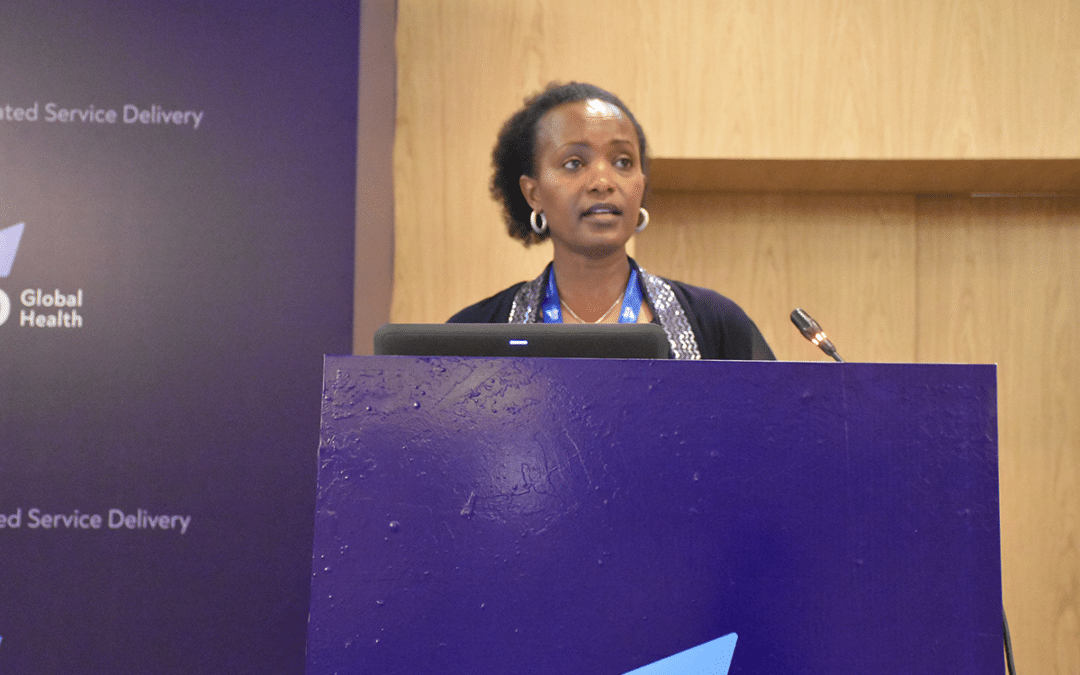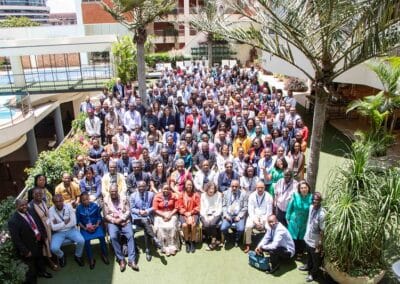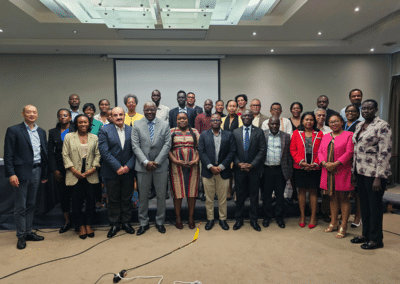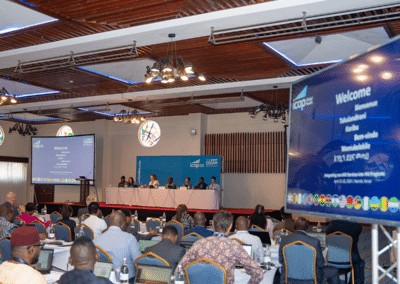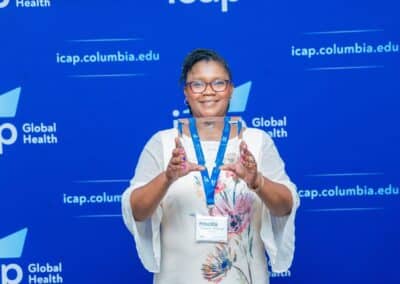The Rwanda National Network of People Living with HIV (RRP+) runs a peer education program that supports over 153,000 recipients of care and their families by linking them to HIV services, including testing and HIV prevention services such as PrEP and HIV treatment.
Sage Samafara is the executive secretary of RRP+. In this Q&A, she talks about the importance of supporting recipients of care in Rwanda through peer education.
What is Rwanda’s peer education system?
Rwanda’s peer education system is a national program that leverages the lived experience and expertise of people living with HIV. The program supports peers – experienced recipients of care with good ART adherence – to provide tailored psychosocial counseling, linkage, retention, and re-engagement support to other people living with HIV. Peers also work with communities to determine who needs home visits, nutritional support, and/or antiretroviral therapy (ART) delivery. Although the Rwanda Ministry of Health does not currently include community ART delivery in its national guidelines, exceptions are made for recipients of care depending on their circumstances.
How is the peer education system organized?
In 2008, ICAP in Rwanda partnered with RRP+ to establish the peer education system at five health facilities, with support from PEPFAR. Following the pilot’s success, the MOH decided to scale up the program to 182 PEPFAR-supported sites to support adherence to treatment. Currently, 585 health facilities in Rwanda support the peer education system, with over 5,000 peer community educators. Each peer serves a community of 40-45 clients in a given geographical location or sector. In addition, there are also peers for certain groups with specific needs, such as key populations, and adolescents, among others.
How is RRP+ involved in coordinating the peer education system?
RRP+ is responsible for implementing community DSD activities in Rwanda. The peer education system is one method used to engage recipients of care. The other way is through community representatives. Community representatives are selected to advocate for recipients of care at the district level. We use data collected from recipient of care communities for this advocacy. At RRP+, our community DSD activities include facilitating the preparation of tools that community representatives use for data collection. We also train community representatives to conduct qualitative and quantitative assessments on the quality of HIV services, human rights, attitudes of health care providers, coverage, and diversity of HIV services that inform HIV community priorities. From these findings, RRP+ initiates advocacy papers for policy change at both the program and relevant ministerial levels.
Why is community involvement in HIV programming significant?
Community members lead all community activities themselves. We develop tools, collect data, conduct preliminary evaluations, and, most importantly, hold consultative meetings in biannual provincial coordination meetings. In addition, every month, representatives meet RRP+ field officers at health facilities, where they discuss the progress of community activities. Also, community representatives conduct monthly and quarterly focused group discussions and report on the findings of quantitative and qualitative assessments. These activities have enabled us to raise awareness and propose new interventions and changes in policies and guidelines for the HIV program at the national level.


